[Click here if you’ve landed here looking for our Primary School Resource Pack].
Bilbo Baggins bets his life on a riddle in The Hobbit. Fortunately, for the story he doesn’t lose (or else the dwarves would never have kept their appointment with Smaug!). That riddling competition takes place in a dank deserted cave under the Misty Mountains…all very lonely and sinister…but riddles are mostly rooted in a far more homely place.
In the drinking halls of Anglo-Saxon Britain riddling competitions were as common as pub quizzes today and the word-puzzles were often packed with as many double-meanings and smut as the Sun. It’s a tradition that still continues in Christmas Crackers where the jokes are made up of sound-alike words and make you groan out loud:
Marathon runners with bad footwear suffer the agony of defeat.
A bicycle can’t stand on its own because it is two-tired.
One for Graham…
Santa’s helpers are subordinate clauses.
And finally, one for Jenni…
Show me a piano falling down a mineshaft and I’ll show you A-flat minor.
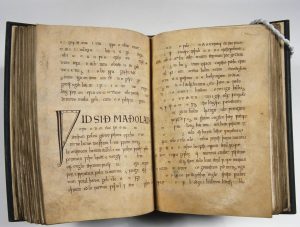
Exeter Book
In Anglo-Saxon times very few people could read, so the riddles relied on sound-alike words. The riddles would be learned by heart and performed in public, sometimes with musical accompaniment (a bit like Cracked Voices). Luckily for the author of The Hobbit, around 975 AD some of the riddles were eventually written down, probably by a monk. The Exeter Book is the largest surviving collection of Anglo-Saxon riddles in the world and provides the first recorded use of the term ‘Middle Earth’.
Most of The Exeter Book riddles pretend something that can’t talk is alive. They give inanimate objects a voice, just like Gollum and Bilbo, and ask ‘What am I?’
Riddle 1
Voiceless it cries,
Wingless flutters,
Toothless bites,
Mouthless mutters.
Riddle 2
This thing all things devours;
Birds, beasts, trees, flowers;
Gnaws iron, bites steel;
Grinds hard stones to meal;
Slays king, ruins town,
And beats mountain down.
The answer to these two of Tolkien’s puzzles are or course wind and time.
When writing about the Anglo-Saxon origins of Therfield Heath (a puzzle in itself) for Cracked Voices, it seemed right to base the song on a riddle, so I set about writing my own.
Riddle the first
Beaten for the silence I steal –
I am the cup that spills sorrow and joy.
With prayerful mouth and enduring noise,
mine is the fateful summoning voice.
Tethered yet ethereal –
no fruit in the Garden so readily peels.
[Scroll to the bottom of the page to find the answer].
It was a fun challenge. Why don’t you have a go? (Don’t worry…it doesn’t have to rhyme!)
Tips
Here’s some tips to help you write your own riddle…
- Think of your favourite object…the thing you couldn’t live without.
- Think of its function: What makes it special? Why’s it important? What does it do? What’s it similar to?
- Think with your five senses: What does the object look like? What does it feel like? Does it smell of anything? Does it taste of anything? Does it make a noise?
- Think of your friends and family. Who is your object most like? Why? is it because they have the same emotional connection, do something similar or look alike?
- Set yourself three minutes ONLY to scribble down your random thoughts and phrases without analysing them or changing any of them.
- Read what you’ve written and then salvage the best one or two lines as the start of your riddle.
- Leave it a day or two. Then return to the riddle and expand on it by answering more of the questions in (2), (3) and (4).
- Make the object talk but don’t give its name until you give the answer! Always remember you are asking the question, ‘What am I?’
- Avoid using like (NOT I’m like a cup). It weakens the riddle. BUT I am the cup...
- Post your riddle on Cracked Voices, so others can guess it!
—
[Answer to Riddle the first: a bell]
For slightly more in depth advice from the Poetry Society on writing riddles click here.
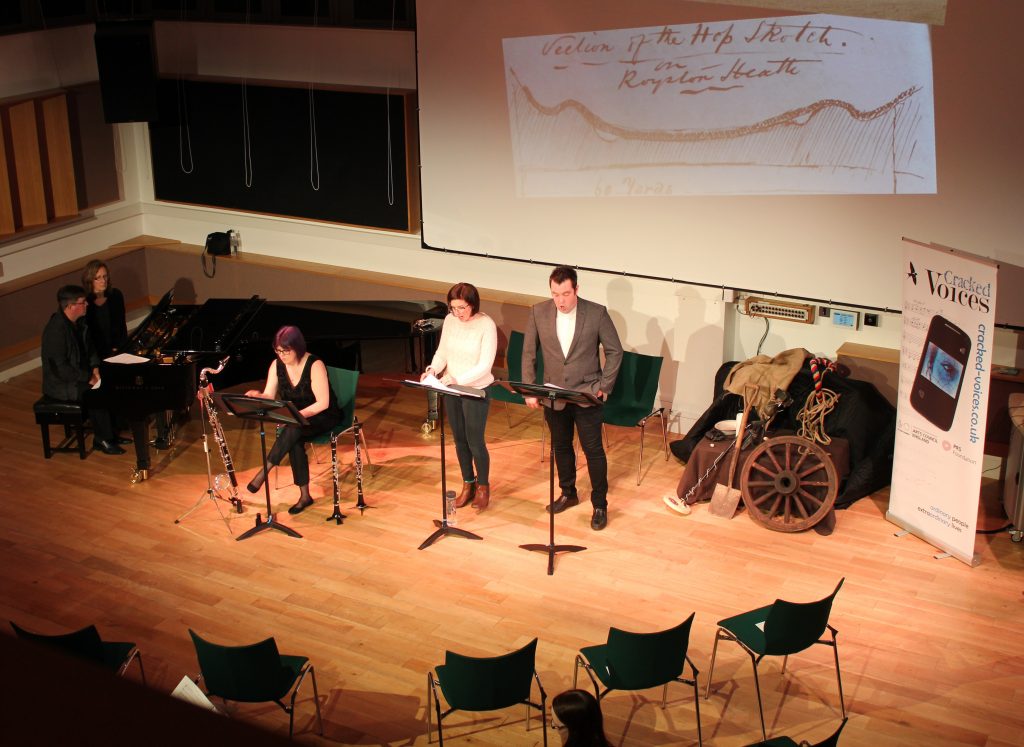 Thank you to everyone who came to our premiere at Cambridge’s Anglia Ruskin University. It was a joy to be able to share Cracked Voices with you. For us it was a moving experience hearing Miles Horner, Donna Lennard, Sue Pettitt and Ralph Woodward taking the songs and making them their own (all photos are from our pre-performance rehearsal).
Thank you to everyone who came to our premiere at Cambridge’s Anglia Ruskin University. It was a joy to be able to share Cracked Voices with you. For us it was a moving experience hearing Miles Horner, Donna Lennard, Sue Pettitt and Ralph Woodward taking the songs and making them their own (all photos are from our pre-performance rehearsal).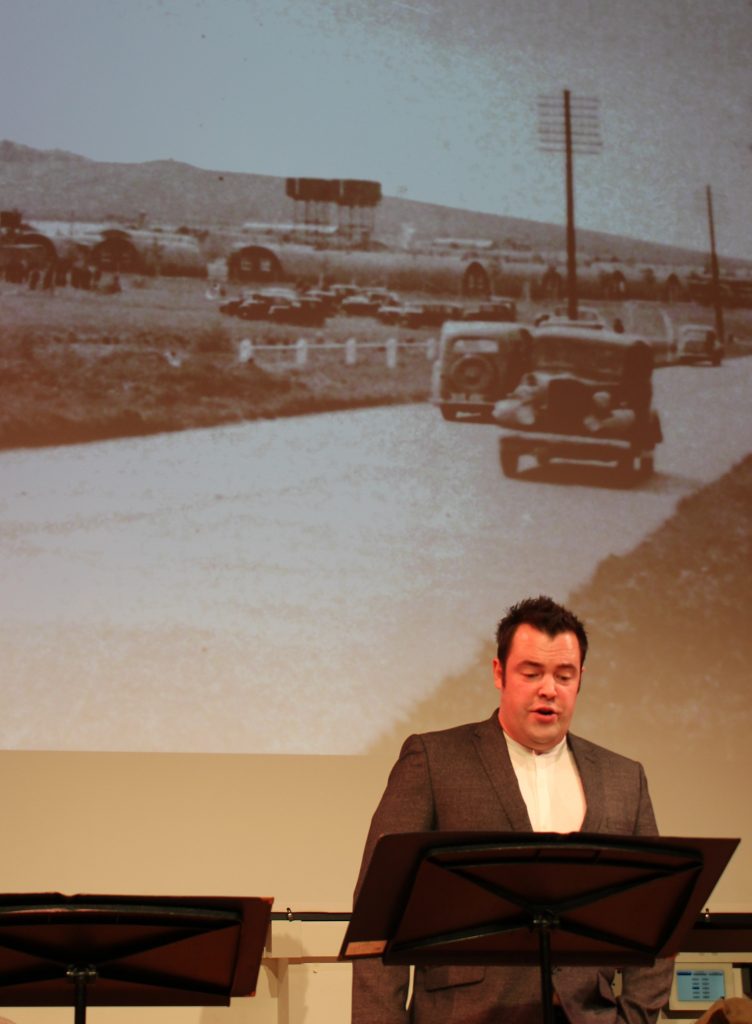
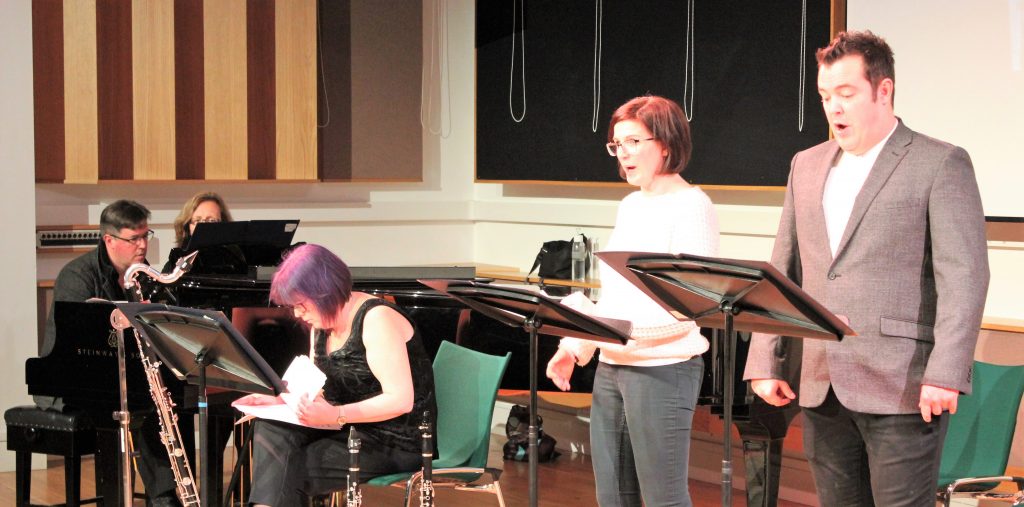

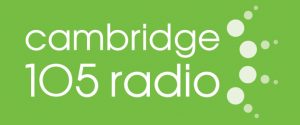
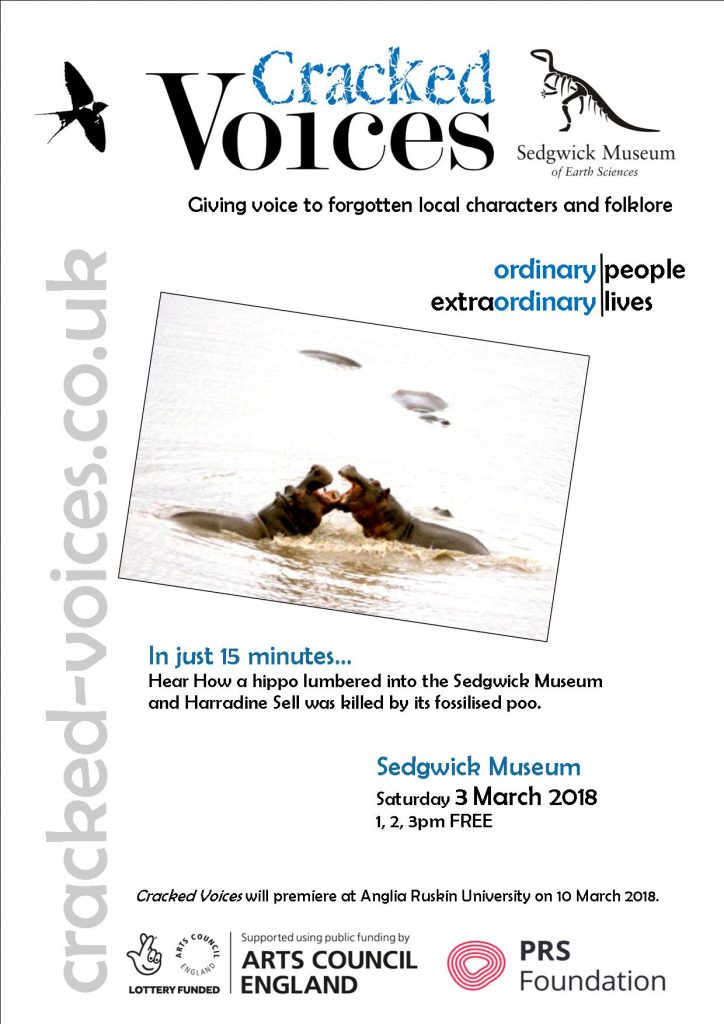
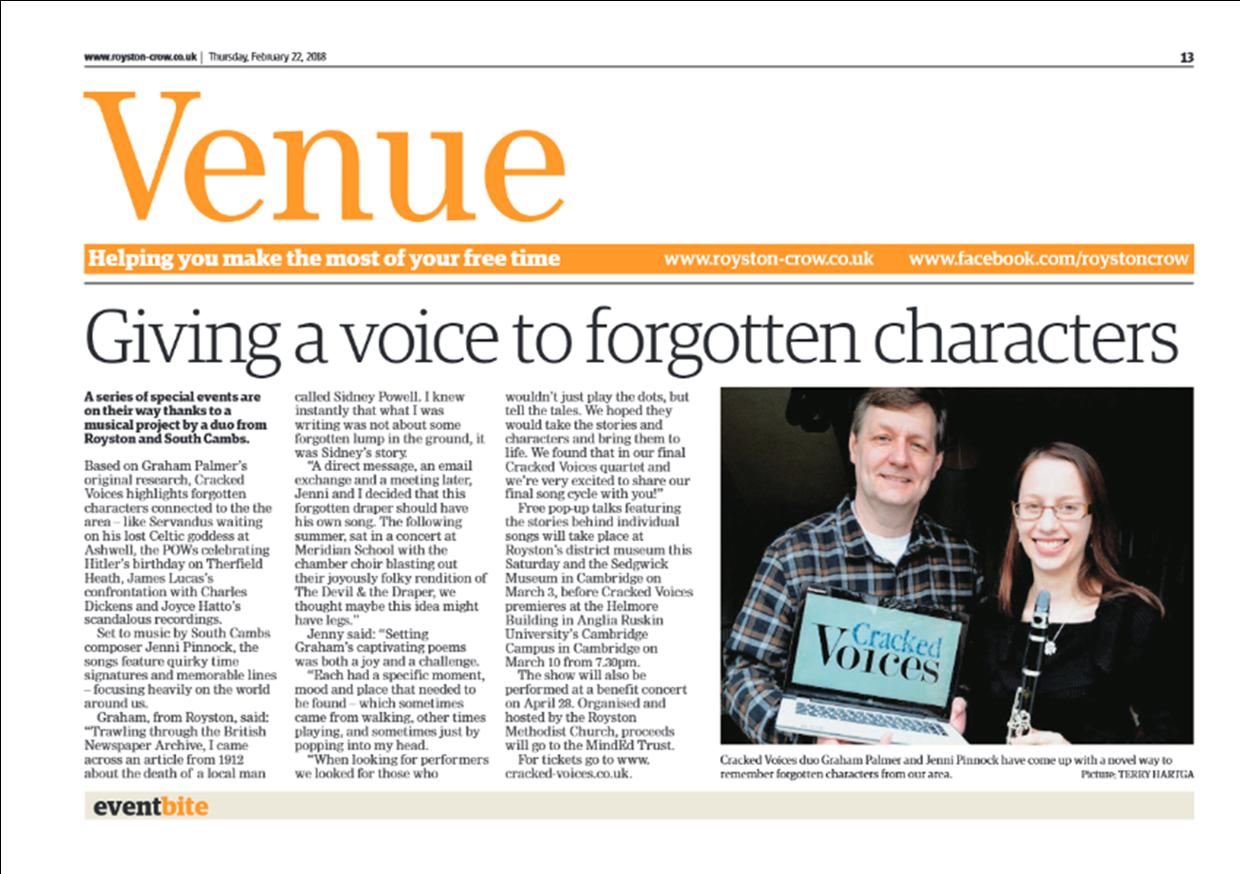

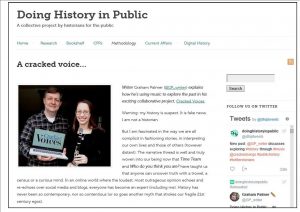 Doing History in Public is a collaborative blog written and edited by graduate historians (mainly at the University of Cambridge). Graham was delighted to be invited to share information about the challenges behind researching and writing Cracked Voices.
Doing History in Public is a collaborative blog written and edited by graduate historians (mainly at the University of Cambridge). Graham was delighted to be invited to share information about the challenges behind researching and writing Cracked Voices.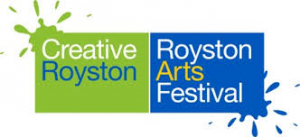 Booking is now open for Graham’s Royston Arts Festival creative writing workshop: Everything Changes: a writing workshop exploring place and time. It will take place at
Booking is now open for Graham’s Royston Arts Festival creative writing workshop: Everything Changes: a writing workshop exploring place and time. It will take place at 